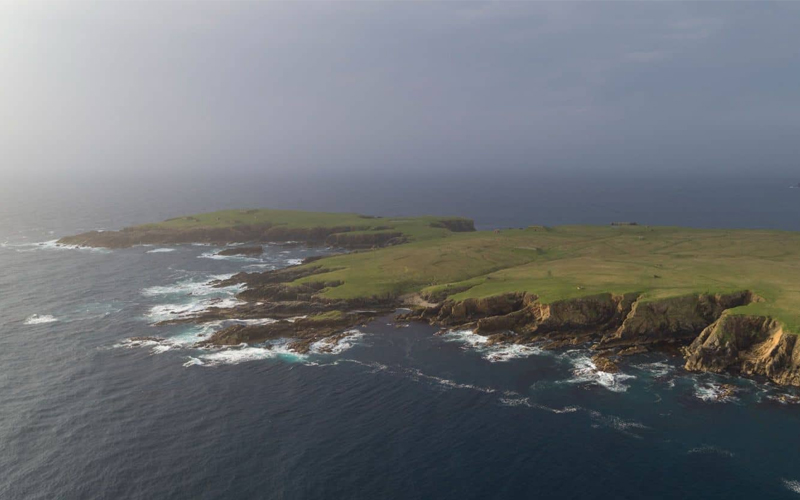
The United Kingdom’s Department of Transport announced 13 May that the country had signed an agreement with the United States to streamline operations to allow US companies to launch from the UK.
According to a press release, the new agreement will “cut down red tape and the regulatory burden to operators, resulting in greater efficiencies and a reduction in costs, resources, and duplication.”
Although the full text of the agreement is not yet available, it appears to be an attempt to streamline regulatory processes to more easily allow US-based operators to conduct launches from Europe. Simple, right? Well, that hasn’t stopped officials from touting it as the UK’s Moon shot.
“This transformational partnership is one giant leap for both countries as we prepare for an exciting new era of spaceflight to lift off,” said Transport Secretary Grant Shapps.
That’s right, Shapps tried to invoke the achievements of Apollo 11 for a partnership that seems to largely be a regulatory extension of an earlier agreement.
Technology Safeguards Agreement
In June 2020, the US and the UK announced the signing of the Technology Safeguards Agreement. The treaty enables US companies to operate from planned UK spaceports and export space launch technology.
This agreement has been a catalyst for three different US-based launch firms to sign agreements with UK-based launch facilities since the agreement was signed.
- In late 2020, an agreement was struck between the UK Space Agency, Lockheed Martin, and Able Space Systems will see an RS1 rocket launch from SaxaVord Spaceport. The launch is set expected to be the first vertically-launched rocket to be flown from UK soil.
- In March 2022, UK-based in-orbit manufacturing startup Space Forge signed an agreement with Virgin Orbit to launch the company’s first satellite aboard a LauncherOne from Spaceport Cornwall. This will likely be the first-ever rocket launch from UK soil and will be conducted later this year.
- Just last week, Astra Space signed an agreement with SaxaVord to begin launching its rocket from SaxaVord spaceport by 2023. The agreement did come with the caveat “subject to the entry of definitive agreements and regulatory approvals,” which will likely be made easier with the announcement of the most recent partnership.
This was all achieved prior to the signing of this most recent partnership. The new agreement may very likely ease the burden on spaceports, operators, and customers, and that’s great. But then just say that. Why the hyperbole?
One more for the road
In one more example of his hyperbolic rhetoric in action, Secretary Shapps claimed that seven spaceports were being “developed” across the UK. In addition to Spaceport Cornwall and Saxavord Spaceport, the other proposed launch sites are UK Sutherland Spaceport, Western Isles Spaceport, Campbeltown Spaceport, Prestwick Spaceport, and Snowdonia Spaceport.
There is as close to zero percent chance as you can get that all the sites proposed will get any further than the planning phase. In fact, to date, only Sutherland, SaxaVord, and Spaceport Cornwall even have permission to begin construction, permission that was hard-won over several years.
In the US and in China, two countries that make up the vast bulk of current launch activities, there are approximately eight active launch sites. This further articulates the ridiculousness of touting seven individual launch sites under development in the UK. The claim isn’t technically false, but it might as well be.
The photo op
Traditionally, these types of agreements are accompanied by an image of a boardroom full of executives signing duplicated documents. But for this “landmark” agreement, that would just not do.
Instead, Secretary Shapps and his US counterpart Secretary Pete Buttigieg were photographed in dramatic fashion in front of one of the retired Space Shuttles at the Smithsonian Institution in Washington, D.C. The shots are going to be great additions to their Instagram pages, but they do very little to visually convey what occurred.
Additionally, with the entire focus of the agreement being US companies coming to the UK, a location on UK soil, in my opinion, would have been significantly more appropriate.
Correction: A previous version of this article stated that only Saxvord and Spaceport Cornwall have received permission to begin construction. However, Sutherland Spaceport has also received permission. Additionally, Newquay Spaceport was added as an eighth proposed location despite it being an alternative name for Spaceport Cornwall.


“Newquay Spaceport” is Spaceport Cornwall. Same place.
Appreciate that note, thank you. I have updated it. Also, thank you for putting me on to rocketeers.co.uk, it looks like an amazing resource.